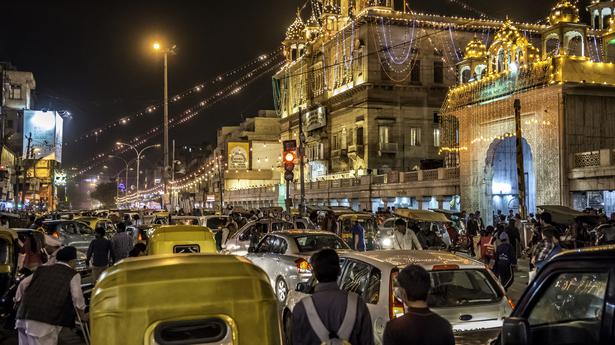
Coming home: A look at Anita Desai’s Clear Light of Day, with Partition in the backdrop
The Hindu
‘Desai does not merely juxtapose beauty with ugliness, but makes it sometimes impossible to unpick the two’
In Saadat Hasan Manto’s short story, ‘A Tale of 1947’, the protagonist, Mumtaz, decides to set sail for Karachi from Bombay after Partition. His Hindu friends come to see him off; they know nothing of this new country, Pakistan. Responding to the forced division, Mumtaz points at the horizon, where sea and sky seemingly join, and says, “It is only an illusion because they can’t really meet, but isn’t it beautiful, this union which isn’t really there?” Many writers of the subcontinent have chronicled the random violence and the aftermath of Partition, some in searing words conveying the mad fury, others taking a quieter, even oblique glance, like Anita Desai does in her 1980 novel Clear Light of Day.
The story of four siblings, two who left, Tara and Raja, and two who stayed behind in their Delhi home, Bim(la), who teaches history, and Baba, who is autistic, plays out with Partition in the background. It did not affect at least three of them directly perhaps, but the inherited trauma of the momentous incident lingers. The characters travel back to their past, and coming to terms with it also holds ominous portents about the future.
Decaying Delhi
The novel begins with Tara returning to her old Delhi home for a visit with her diplomat husband Bakul, years after Independence. Her parents are no more, neither is their old, melancholic aunt, Mira Masi, who drowned in brandy as the summer of 1947 heated up. As Tara listens to her brother Baba playing music with the volume too loud, and takes in the sweep of the garden and its “dripping tap at the end of the grass walk, the trees that quivered and shook with birds, the loping dog, the roses,” she remarks that it is incredible how everything is “all exactly the same, whenever we come home.” Her elder sister, Bim, bristles at the comment and shoots back, “That is the risk of coming home to Old Delhi. Old Delhi does not change. It only decays.”
Bim does not approve of New Delhi, “where things happen”, and clings to Old Delhi, where “whatever happened, happened long ago — in the time of the Tughlaqs, the Khiljis, the Sultanate, the Moghuls — that lot.”
But there is no overlooking “that stormy summer” of 1947, when they could see fires burning in the city every night. Their brother Raja, who loves Byron and Iqbal in equal measure and recites Urdu poetry in perfect pitch and tone, is sick with worry. Their neighbour, Hyder Ali, had opened his library to a young Raja so that he could dip into Urdu literature at will. When the Alis depart suddenly, quietly, Raja is distraught. He learns the hard way that taking up Islamic studies at Jamia Millia is out of the question; and the irony is not lost on anyone when he has to opt for English literature instead at Hindu College.
The next flood











